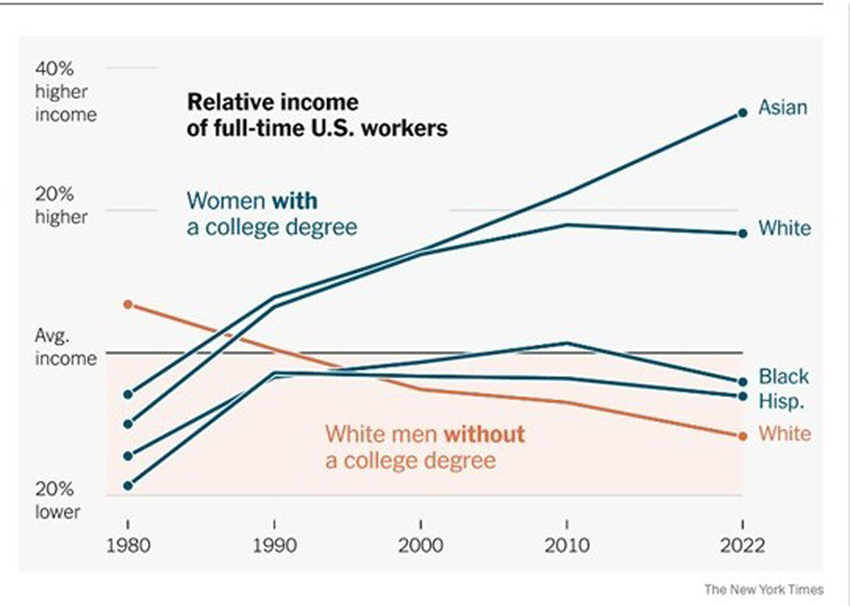A recent chart in The New York Times illustrates the economic disadvantages facing boys and men, particularly those without college degrees, in today’s service-oriented economy. The article notes that as the U.S. economy has shifted away from manufacturing jobs and toward knowledge-based work, many men, particularly white men without higher education, now earn significantly less than the average American worker. This economic decline has broader social implications, as it affects men’s ability to achieve stable, middle-class lifestyles, and has political consequences, as this demographic has become a powerful voting bloc influenced by economic anxieties.

Beyond presenting the economic challenges, the article lacks mentioning a key part of the solution: admitting and supporting boys who are equally intelligent as their female counterparts but may not align as well with the current educational system’s expectations. This disparity has contributed to a widening gender gap in college graduation rates, where female students outpace males, further limiting the economic prospects for men who lack college credentials. Awareness of this issue is growing, but for meaningful change to occur, a proposed approach to addressing this issue would involve shifting away from gendered grading criteria that favor behaviors often more common among female students, such as consistent organization and punctuality, which may not directly correlate with workplace success.
By focusing on learning outcomes rather than gendered behavior patterns, educational institutions could provide a more equitable environment, ultimately enabling more boys and men to succeed in college and beyond. Such changes could help address the economic imbalances facing men, leading to a healthier, more balanced society.
William A. Draves is the President of Learning Resources Network (LERN). LERN is the leading association in lifelong learning programming in the world, serving over 1,000 organizations every year.

